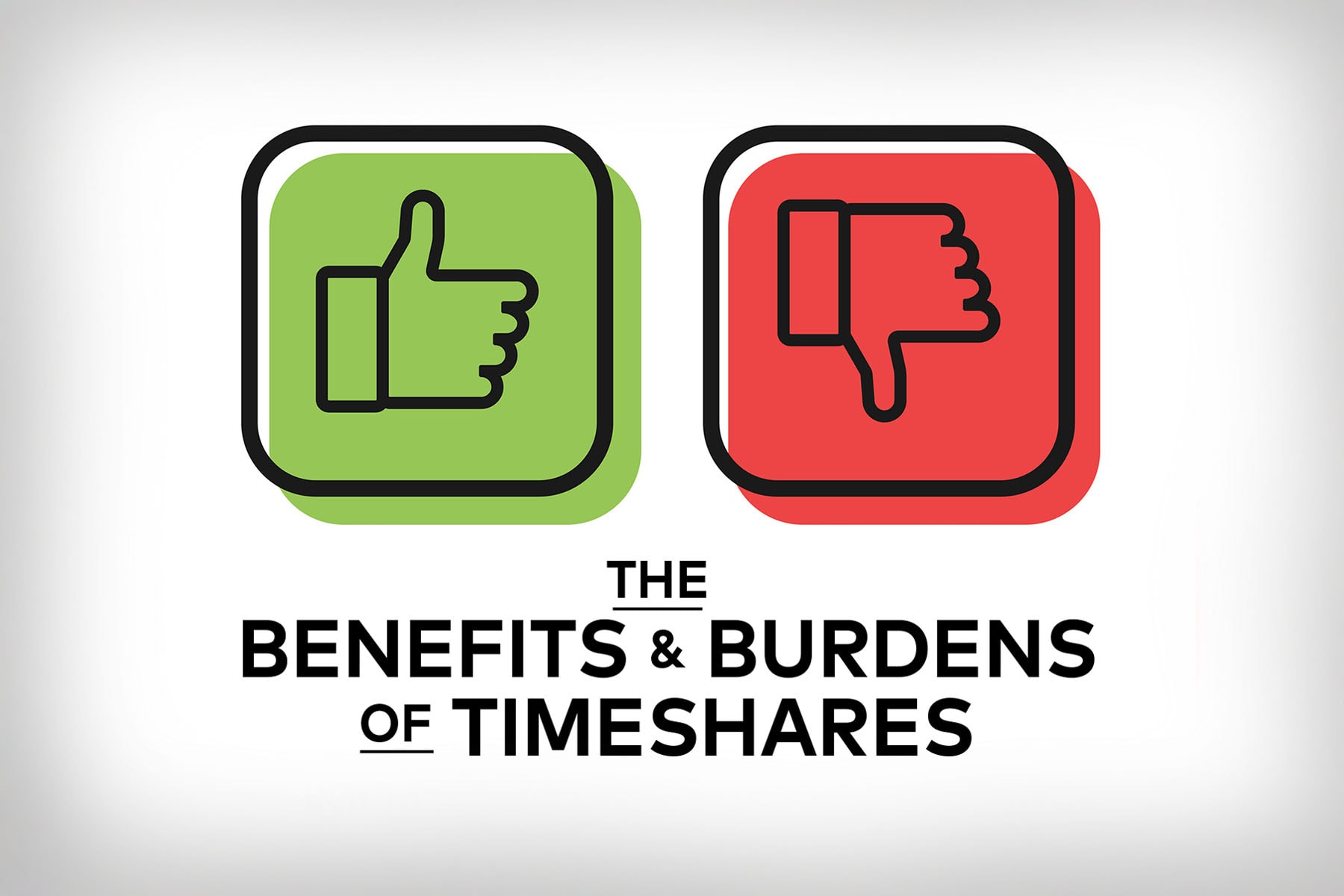
April 30, 2025 · Episode 4
8 Min, 40 Sec · By Wesley Financial Group
Can you write off those pesky timeshare maintenance fees on your taxes? In this episode, we break down what you can and can’t deduct when it comes to timeshare ownership. From maintenance fees and property taxes to loan interest and even charitable donations, we explore the possibilities—and the paperwork. Learn the difference between deeded and right-to-use timeshares, the tax perks of renting out your unit, and why talking to a tax professional is key. Whether you’re looking to save money or just understand your options better, this episode is packed with useful info for any timeshare owner.
Table of Contents
Can You Write Off Timeshare Maintenance Fees? Tax Tips for Owners
Timeshare ownership comes at a great expense. Therefore, many owners are curious whether their timeshare fees are tax-deductible. As these expenses grow, it is natural to be curious about how they impact your taxes and even ask, can you write off timeshare maintenance fees? This article will help you understand the tax status of your timeshare expenses.
Continue reading to determine whether your timeshare maintenance fees can be written off. Also, we’ll see other tax deduction opportunities for timeshare owners.
Who’s Eligible to Write Off a Timeshare?
A timeshare is a vacation property under fractional ownership, meaning several owners share the cost and use. Timeshares work in one-week intervals, so one unit could have up to 52 owners. However, not all agreements are the same, and therefore not all owners have the same tax benefits. If writing off a timeshare is possible, learn what type of timeshare you own.
Types of Timeshare Ownership
The type of timeshare ownership is the most crucial factor in determining potential tax deductions. Timeshare purchases often fall under two types:
- Deeded Timeshare Agreement: A deeded timeshare is one where you have an ownership interest in the property. Every owner of the particular unit owns a percentage of the property and possesses a legal deed as proof. Deeded owners tend to qualify for the most significant timeshare tax deductions.
- Right-to-Use Timeshare Agreement: A non-deeded timeshare is where you do not hold ownership interest but instead lease the property for a set amount of time. Timeshare lease agreements range anywhere from 10-99 years. Leased owners seldom enjoy the benefits of tax deductions.
Before filing your taxes, ascertain which type of timeshare agreement you have. As you’ll later find, some deductions rely on whether you own or lease the property.
Are Maintenance Fees Tax Deductible?
Unfortunately, timeshare maintenance fees are not typically deductible. Since a timeshare unit is considered a private entity, expenses such as maintenance fees and special assessments are typically ineligible for a tax write-off. Nevertheless, consult with your tax professional to ensure this before moving on.
Most maintenance fees are not tax deductible because resorts use maintenance fees to cover a wide range of expenses. These fees help pay for unit repairs, amenity upgrades, cleaning, landscaping, etc. Consider that these fees serve a similar purpose as the money you spend on maintaining your home. To find out more about what your timeshare maintenance fees go toward, click here.
One rare exception for tax write-offs on timeshare maintenance fees is rental income. Those using their timeshare as an additional source of income by renting it out to others must report their rental income when filing taxes. By doing so, you may qualify for tax deductions. Typically, owners are permitted to standardize business expense deductions if they paid their maintenance fees but rent their units out to others.
Again, make sure you have checked with your tax professional whether your maintenance fees are tax-deductible.
Can Timeshares Charge Special Assessment?
A special assessment is a required fee that timeshare owners must pay to cover the cost of maintenance, upgrades, or other costs associated with their ownership.
Special assessment fees are derived from special assessments of the property, as the name implies. After a powerful storm, for instance, the damage to your property would be assessed, and you and the other owners would be responsible for paying any repair costs that weren’t planned for in the resort’s maintenance budget or covered by insurance.
The resort is authorized to charge timeshare owners special assessment fees over and above regular operating costs to maintain the property and amenities because they are jointly responsible for their specific property within a resort.
To avoid paying for a fraudulent charge or having your funds misappropriated, double-check that the reason for any special assessment fee charges is valid and clearly stated.
FREE
Timeshare Exit Info Kit
Get your free Timeshare Exit Info Kit today to learn more about Wesley Financial Group and how we may be able to help you get out of your timeshare.
Are There Tax Benefits of Timeshare Ownership?
Yes, sort of. Although few and far between, there are small tax benefits to owning a vacation club membership. The most common and notable tax benefit is writing off your property tax payments. To benefit from this option, you must ensure the assessed taxes are distinct from any maintenance charges (the two are sometimes lumped together in timeshare bills).
We’ll get into more benefits below.
What Are the Specific Tax Deductions Available for Timeshare Ownership?
Assuming you are referring to US tax deductions, below are some of the specific tax deductions available for timeshare ownership:
- The timeshare cost is tax deductible as it is considered a second home.
- Interest on a mortgage or loan used to purchase a timeshare is tax-deductible.
- Property taxes paid on the timeshare are tax deductible.
- Renting out your timeshare
- Donating your timeshare to charity
We’ll discuss these later, but first, let’s address how these tax deductions work.
How Do Timeshare Tax Deductions Work?
Your timeshare property has many regulations that you must follow when filing taxes. You can only deduct expenses related to one timeshare. You can only deduct expenses from your income for one of your timeshare properties, even if you own more than one. Remember the financial effects of buying a timeshare. You must pay taxes on the income from renting out your timeshare. To properly prepare your tax report and ensure that you receive the proper deductions, you will want to work with a tax professional. More specifically, you want to find an expert in taxes and timeshares.
Marriott Vacation Club Property Tax Deduction
During the tax season, Marriott Vacation Club will likely send you a 1098 form for the interest payments you’ve made over the year. But can you deduct interest payments on your tax returns?
It varies. If a timeshare is deeded, publicly recorded, and meets all other requirements for mortgage interest deductions, you may be able to deduct interest on it.
The timeshare must also be used as a home for more than 14 days, or more than 10x of the days it is rented if you rent it out throughout the year. You only count your days of use and days of the rental when you are legally permitted to use it or benefit from its rental.
One can only deduct mortgage interest on a maximum of two homes (the main home and a second home). You won’t be able to afford your timeshare if you have mortgages on two homes.
Hilton Grand Vacations Tax Deductible
As with Marriott Vacation Club, Hilton Grand Vacation will also send a 1098 form covering your interest payments over the taxable year. Deducting these payments on your tax return may be possible but is not guaranteed. In most cases, the terms and conditions remain the same as those mentioned above.
How Does Buying a Timeshare Affect My Taxes?
As a timeshare owner, you probably wonder how buying a timeshare affects valid tax deductions. You’ll be happy to know you may qualify to claim several types of deductions. Some are common amongst real estate properties, while others are specific only to timeshares. Let’s have a look at a few of the best examples here:
Loan Interest Payments
Depending on the type of loan, you may or may not be able to deduct your loan interest from the timeshare payments. To deduct the interest paid on a timeshare mortgage, the owner must itemize their deductions on their federal income tax return.
If you purchased with a credit card or a lease directly from the timeshare company, sadly, you probably will not be able to write off the interest. However, if it’s a secured loan, the interest you pay is likely to be tax-deductible. So, what is a secured loan, you ask? A loan with collateral, which in this case, can either be your deeded timeshare week or a home equity loan. While taking on debt is not ideal, a secured loan may at least relieve some financial hardship.
A tax professional can help to advise you as to whether your timeshare loan interest payments are tax-deductible.
Property Tax Deductions
The relationship between timeshares and property taxes varies from state to state. To deduct property taxes paid on a timeshare, the owner must again itemize their deductions on their federal income tax return. However, one factor remains the same: deeded ownership. Your local government will likely bill your share of the property taxes directly or include it in your other bills with deeded timeshare ownership.
Deeded owners who’ve billed their property taxes separately should have an easy deduction process. It becomes more challenging when these taxes get lumped together with other bills, such as maintenance fees. You may even have to request an itemized statement from your timeshare company to distinguish how much you pay in maintenance fees versus property taxes.
Consider consulting with your tax advisor to determine how to deduct your timeshare property taxes.
Rental Use
As mentioned, timeshare owners who purchased it with the sole intention of renting it may qualify for deductions. Always remember to report your rental expense income when filing, and be aware that you can only deduct expenses up to that amount. The Internal Revenue Service (IRS) has several regulations and limitations regarding your rental-use tax deduction before investing in a timeshare.
It is worth noting that these types of deductions are not exclusive to timeshares but are considered the same as any business expense write-offs. So, no, you are not getting any favorable treatment from the IRS if you own a timeshare. Remember to consult with your tax advisor before filing taxes to determine if you qualify for deductions.
Donations
Many owners are so eager to eliminate the unwanted timeshare that they bypass selling it and choose to donate it instead. By donating your timeshare, you may become eligible for a tax rebate equal to the fair market value of the vacation property. This usually requires an independent appraisal with documentation backing up your deduction claims. Check with a tax professional for more information on this process.
If you want to get rid of your property without the extra hassle of donating it, then consider working with a timeshare exit team. Find a trustworthy timeshare exit company with experienced timeshare experts, such as Wesley Financial Group, LLC.*
Frequently Asked Questions

How Do I Claim Deductions on My Tax Return
To claim the available deductions on your U.S. tax return, you must use Form 1040 to file your income taxes and include your itemized deductions on Schedule A to claim itemized deductions: On the appropriate lines of Schedule A, enter your expenses. Total them. On the second page of your Form 1040, duplicate the total amount.
Please seek advice from a tax professional to ensure you file your taxes properly.
Are There Any Limits on Timeshare Tax Deductions that Can Be Claimed?
There are three limits to timeshare tax deductions. The Internal Revenue Service (IRS) considers a timeshare to be a piece of property, which means it can be subject to taxation. The amount of the deduction for both the interest and property taxes paid on a timeshare may be limited by the owner’s income. The effects on state and local taxes could differ. There might be particular incentives you can take advantage of depending on your timeshare location. Make sure to discuss these with your tax expert as well.
Speaking of, when in doubt, consult a tax expert. The last thing you want to happen is to find yourself in an audit situation where you’ve made unauthorized deduction claims. To ensure you receive all of the timeshare tax deductions that are due to you and avoid mistakenly claiming one that isn’t, consult a tax expert with extensive tax education about navigating them.
Can I Deduct the Costs of Maintaining a Timeshare?
Your maintenance costs are not tax deductible, we’re sorry to say. These fees, which have an average annual cost of about $1,000, are used by the resort, where you have a timeshare to cover everything from landscaping to amenities and operating expenses. 1 In case you didn’t notice, fees typically increase by 5% annually. Therefore, they are ineligible for a tax write-off and will become a bigger drain on the budget over time.
There is a single maintenance fee tax exemption. You could deduct them only if you paid them while renting out the timeshare to other people.
Can I Deduct a Points-Based Timeshare?
“Points-based” timeshares are much harder to claim deductions for because they don’t technically equate to real estate ownership. This type of timeshare typically includes a “right-to-use” agreement rather than a “deeded” agreement. With this type, consumers do not own a deeded property but only a time selection. Therefore, claiming a deduction for timeshare mortgage interest is much harder. Although the “points-based” grows increasingly popular each year, many buyers are unaware they’re losing some ownership rights.
Summary
Writing off your annual maintenance fee is highly unlikely. However, other tax deduction options for your vacation ownership are worth exploring. This article only covered the surface of all the deduction opportunities. So remember to consult with a tax professional to help determine the best course of action when you file your taxes. Finding support from a trusted tax advisor can ensure you prepare your timeshare tax report correctly and that you receive your fair deductions.
To learn more about timeshare cancellation services, contact Wesley Financial Group, LLC today!

Over 50,000 families helped!
Find out if you can cancel your timeshare. Schedule a FREE consultation with timeshare cancellation experts now.
Get Rid of Your Timeshare
Schedule a FREE Consultation with one of our timeshare cancellation experts who have saved families over $635 million.










